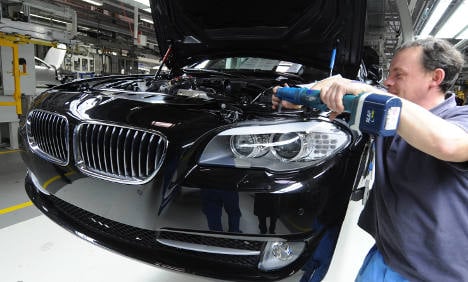“We are now in talks with factories to set up night shifts and cut back on summer holidays,” a spokesman for BMW, the world’s leading premium car maker, told AFP.
Six months ago the company was still using temporary work measures to deal with a slump in sales.
“The plants in Leipzig (eastern Germany), Spartanburg (United States) and more and more in Dingolfing (southern Germany) are nearly at full capacity,” personnel director Harald Krüger told the business daily <i Handelsblatt.
BMW’s new X1 sports utility vehicle and its new Series 5 autos are the models most affected by assembly line strains, the spokesman said.
BMW has now hired 5,000 part-time workers, compared with around 1,500 in the midst of the economic crisis last year, almost none of whom worked on production lines.
Up to 25,000 BMW workers were placed on short-time schemes during the downturn, including some as late as January.
Rival Daimler has laid on extra weekend shifts meanwhile at its Mercedes Benz factory in Sindelfingen, southwestern Germany, a spokeswoman said.
Daimler is considering similar measures at a heavy truck plant in Wörth, southern Germany in September.
The group now employs 1,800 temporary workers, and three factories are running at full capacity “thanks to a rebound in demand for our products and a pick-up in global markets,” the spokewoman said.
At the end of May, 13,700 workers were still on shorter hours, but that compared with 68,000 in April 2009.



 Please whitelist us to continue reading.
Please whitelist us to continue reading.
Member comments